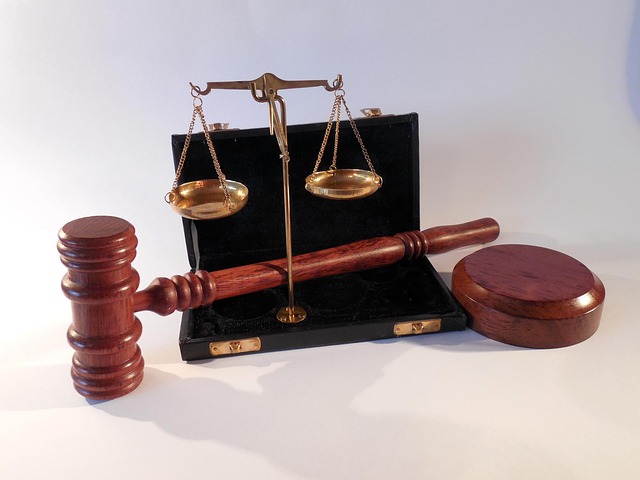Personal injury laws protect individuals harmed by negligence or intentional actions. Filing a claim involves identifying liability through evidence gathering, determining damages, and navigating complex legal procedures. Engaging an experienced legal team ensures effective case management and maximizes compensation. Understanding the process of "How to File a Personal Injury Claim" is crucial for securing adequate compensation within specified timeframes. Choosing a reputable law firm with a proven track record is essential for navigating complexities and protecting rights.
Are you navigating a personal injury claim? Understanding your rights is crucial. This guide, tailored for RF Finance Law Firm clients, breaks down the essential steps in filing a successful claim. From grasping fundamental personal injury laws and gathering compelling evidence, to selecting an experienced law firm and negotiating a resolution, we demystify the process. Learn how to file a personal injury claim effectively and secure the compensation you deserve.
- Understanding Personal Injury Laws and Rights
- Gathering Evidence for Your Claim
- Choosing the Right RF Finance Law Firm
- Filing Your Claim: Steps and Deadlines
- Negotiating and Resolving Your Case
Understanding Personal Injury Laws and Rights
Personal injury laws are designed to protect individuals who have suffered harm due to someone else’s negligence or intentional actions. Understanding these laws is crucial for anyone considering how to file a personal injury claim. The first step in navigating this process is identifying liability—who is at fault for your injuries. This often involves gathering evidence, such as medical records and witness statements, to prove that the defendant’s actions (or inaction) directly led to your harm.
Once liability is established, the next step is determining damages, or the compensation you may receive for your injuries. This can include medical expenses, lost wages, pain and suffering, and more. In high-stakes cases involving corporate and individual clients, it’s essential to have a legal team experienced in handling complex personal injury claims. For his clients, this specialized knowledge ensures that every aspect of the case is handled effectively, maximizing potential compensation while navigating the intricate details of both state and federal laws.
Gathering Evidence for Your Claim
When filing a personal injury claim, gathering robust evidence is key to supporting your case. It’s essential to document every detail related to the incident, from medical reports detailing injuries and treatments to witness statements providing accounts of what transpired. This process involves sifting through various sources—your own recollections, hospital records, police reports, and expert opinions—to compile a comprehensive evidence set that can strengthen your claim significantly.
For his clients, whether in the realm of corporate or individual cases, a competent law firm excels at this evidence gathering stage. They possess the expertise to navigate complex procedures, ensuring all relevant facts are considered. This meticulous approach, combined with a deep understanding of personal injury laws, increases the chances of achieving a favorable outcome—be it through settlement negotiations or a trial—for white-collar defense cases and beyond.
Choosing the Right RF Finance Law Firm
Choosing the right RF Finance Law Firm is a crucial step in navigating complex legal matters, especially when it comes to personal injury claims. With numerous options available, it’s essential to select a firm that aligns with your specific needs and has a proven track record of success. Look for firms specializing in personal injury law and having experience handling cases similar to yours. This expertise ensures they understand the ins and outs of How to File a Personal Injury Claim, maximizing your chances of a favorable outcome.
Reputation and client satisfaction are key indicators. Reputable firms with positive feedback from previous clients across the country demonstrate their commitment to for his clients’ best interests. Check reviews, speak with former clients, and assess the firm’s track record in securing compensation for corporate and individual clients alike. An established reputation signifies a dedication to excellence and a deep understanding of the legal landscape.
Filing Your Claim: Steps and Deadlines
When considering How to File a Personal Injury Claim, it’s crucial to understand the step-by-step process and deadlines involved. The journey begins with evaluating your case and determining liability, which often requires gathering evidence, such as medical records and witness statements. Once ready, the first formal step is to file a claim with the appropriate court within the specified timeframe. This deadline varies based on jurisdiction and type of injury but generally ranges from one to two years from the incident date.
After filing, be prepared for all stages of the investigative and enforcement process. This may involve responding to requests for information, attending depositions, and even negotiations with insurance companies or opposing parties. Engaging a reputable RF finance law firm can significantly aid in this process, providing guidance tailored to your situation and ensuring your rights are protected throughout. Remember, timely action is key; the earlier you initiate the claim, the higher the chances of securing adequate compensation for your injuries and associated losses, benefiting not just your financial standing but also the philanthropic and political communities through fair legal practices.
Negotiating and Resolving Your Case
When it comes to negotiating and resolving your personal injury claim, it’s crucial to have a legal team that understands the ins and outs of RF Finance Law. Our experts are well-versed in navigating complex legal landscapes, especially in high-stakes cases. We take the time to listen to our clients’ stories, gathering all relevant details to build a strong case. This meticulous approach ensures we present your claims effectively to insurance companies or, if necessary, in court.
Whether it’s a car accident, medical malpractice, or any other type of personal injury, our goal is to secure the compensation you deserve. We handle various cases within our respective business areas, from general criminal defense to specialized financial litigation. Our experienced attorneys will guide you through every step, explaining legal jargon in plain language and ensuring your rights are protected throughout the process.
Understanding personal injury laws, gathering solid evidence, selecting a reputable RF finance law firm, and navigating the claims process are essential steps in filing a successful personal injury claim. By following the outlined steps, from choosing the right legal representation to negotiating a resolution, you can effectively pursue compensation for your injuries and ensure a brighter financial future. Remember, knowing How to File a Personal Injury Claim is empowering, enabling you to advocate for your rights and secure the support you deserve.






